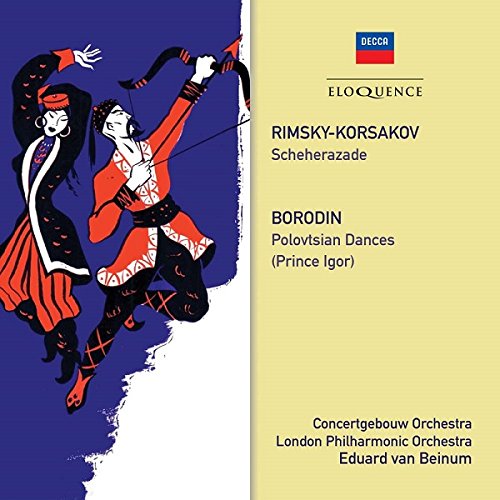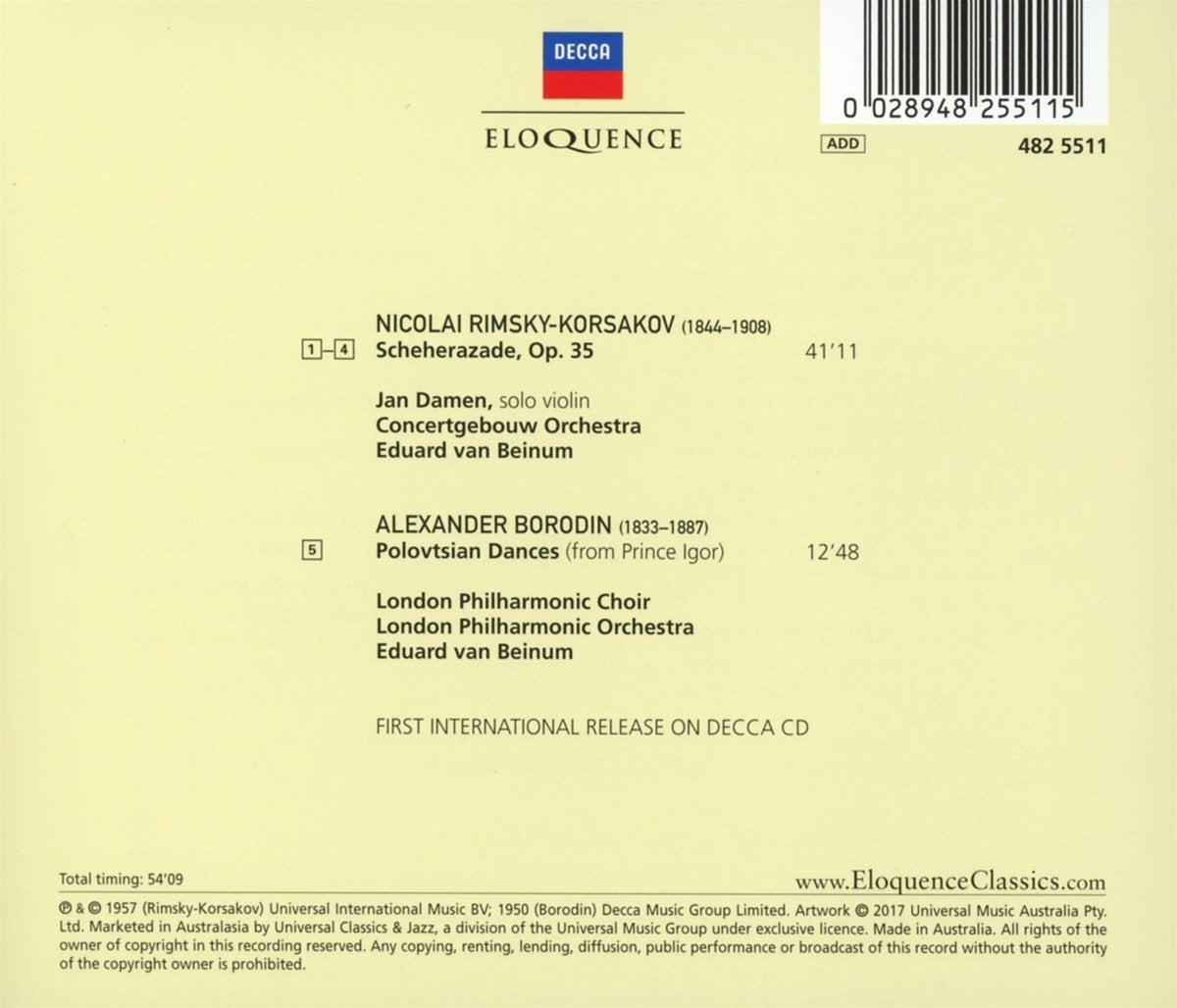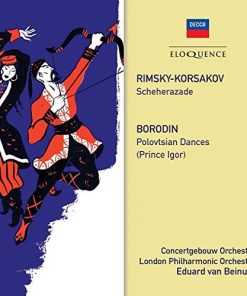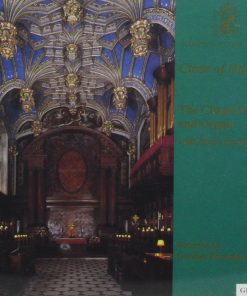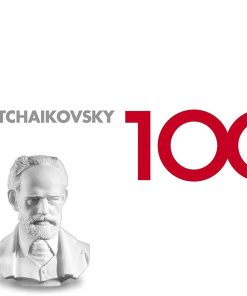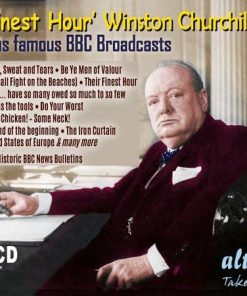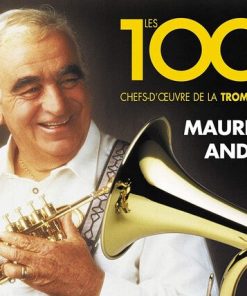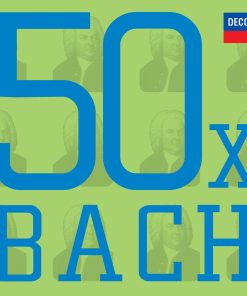RIMSKY-KORSAKOV: SCHEHEREZADE; BORODIN: POLOVSTIAN DANCES – VAN BEINUM; LONDON PHILHARMONIC DECCA
$ 11,99 $ 7,19

For the first century of its history, the Royal Concertgebouw Orchestra of Amsterdam had only four principal conductors and it was the second and fourth, Willem Mengelberg and Bernard Haitink who enjoyed a truly international reputation.
Previous issues on Eloquence from Haydn (476 8483) to Debussy
(464 6362) have shed light on the recordings made with the Concertgebouw by the third of its directors, Eduard van Beinum. With him the orchestra made many recordings for Decca which are being restored to the catalogue while uncovering the particular interpretative gifts identified by Classical Source: ‘With Van Beinum there is no artifice, just wholesome regard for the music. His is an intelligent approach to the music he plays through scrupulous attention to detail.’
Speaking of a recording made in July 1956 for Philips of ‘Scheherezade’, the four-movement tone poem in which Rimsky-Korsakov demonstrated his supreme gifts as an orchestrator, Classical Source called it ‘a superbly musical account, blessedly free of crass mannerisms and cheap vulgarities – with power and sensitivity in equal measure’. Particular praise was accorded on all sides to the solo part of the story-teller Scheherezade herself: ‘really beautiful solos by the Concertgebouw concertmaster of the day, Jan Damen’, noted Jay Nordlinger in the National Review.
This is among the fleetest accounts of ‘Scheherezade’ on record and Van Beinum’s control of line even at the swiftest of tempi is also a distinguishing feature of the Polovtsian Dances from Borodin’s unfinished magnum opus, ‘Prince Igor’. These were recorded with the London Philharmonic Orchestra and Chorus (singing in English) several years earlier.

‘The orchestral playing in this issue of these vivid dances is positively brilliant – the whirling introductory dance is quite breathtaking.’ Gramophone, November 1950 (Polovtsian Dances)

NICOLAI RIMSKY-KORSAKOV
Scheherazade, Op. 35
Concertgebouw Orchestra
Eduard van Beinum
ALEXANDER BORODIN
Polovtsian Dances (from Prince Igor)*
London Philharmonic Choir
London Philharmonic Orchestra
Eduard van Beinum
Fast Shipping and Professional Packing
Due to our longstanding partnership with UPS FedEx DHL and other leading international carriers, we are able to provide a range of shipping options. Our warehouse staff are highly trained to pack your goods exactly according to the specifications that we supply. Your goods will undergo a thorough examination and will be safely packaged prior to being sent out. Everyday we deliver hundreds of packages to our customers from all over the world. This is an indication of our dedication to being the largest online retailer worldwide. Warehouses and distribution centers can be located in Europe as well as the USA.
Orders with more than 1 item are assigned processing periods for each item.
Before shipment, all ordered products will be thoroughly inspected. Today, most orders will be shipped within 48 hours. The estimated delivery time is between 3-7 days.
Returns
The stock is constantly changing. It's not entirely managed by us since we are involved with multiple parties such as the factory and our storage. The actual stock can fluctuate at any time. Please understand it may happen that your order will be out of stock when the order is placed.
Our policy is valid for 30 days. If you haven't received your product within 30 days, we're not able to issue either a return or exchange.
You are able to return a product if it is unused and in the same condition when you received it. It must also still remain in the original packaging.
